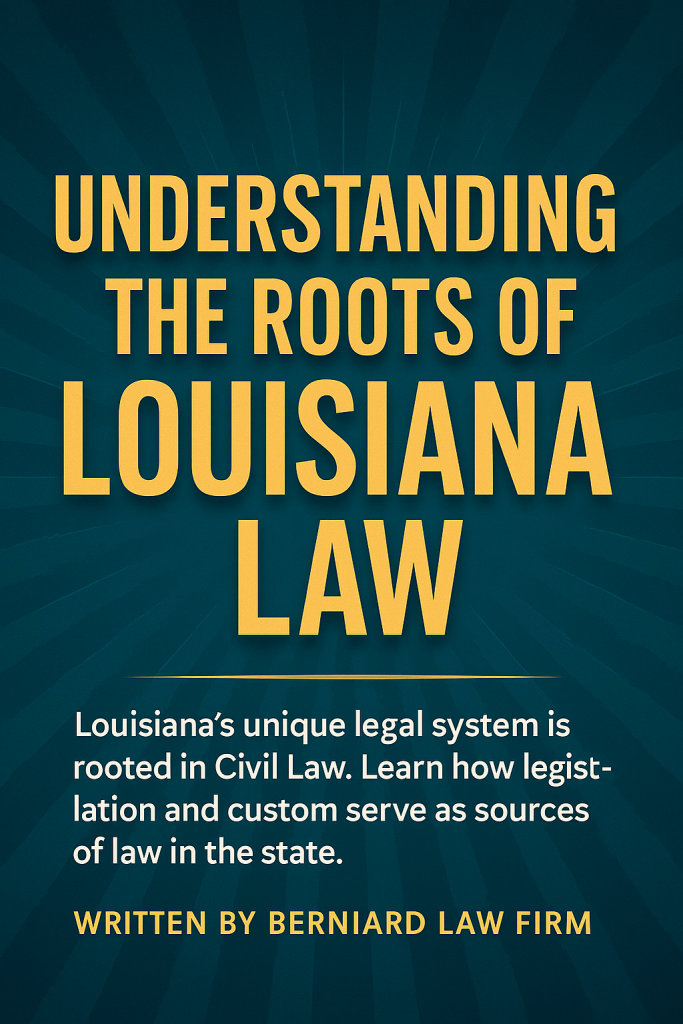 The Limits of Private Agreements
The Limits of Private Agreements
In Louisiana, freedom of contract is a powerful principle — people generally have the right to make their own legal agreements and decide the terms that govern their relationships, businesses, and property. But that freedom is not absolute.
There are certain laws that exist not just to protect individuals, but to safeguard society as a whole. When private agreements try to go against these laws, they cross a line — and under Louisiana Civil Code Article 7, such agreements are considered void from the start.
 Louisiana Personal Injury Lawyer Blog
Louisiana Personal Injury Lawyer Blog


 Why Knowing the Law Matters
Why Knowing the Law Matters Have you ever wondered how judges and lawyers determine what a law truly means? While legal interpretation can sometimes seem complex, Louisiana’s Civil Code gives clear guidance for when the meaning of a law is straightforward.
Have you ever wondered how judges and lawyers determine what a law truly means? While legal interpretation can sometimes seem complex, Louisiana’s Civil Code gives clear guidance for when the meaning of a law is straightforward. When the Law Is Silent
When the Law Is Silent Introduction: Understanding the Roots of Louisiana Law
Introduction: Understanding the Roots of Louisiana Law
 On August 22, 2025, the Tangipahoa Parish community was shaken by the massive explosion and fire at
On August 22, 2025, the Tangipahoa Parish community was shaken by the massive explosion and fire at  This
This